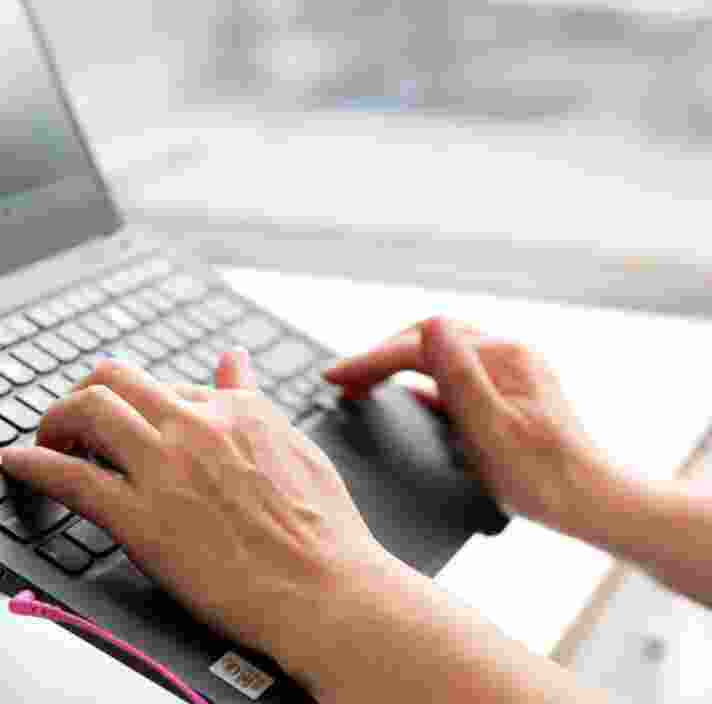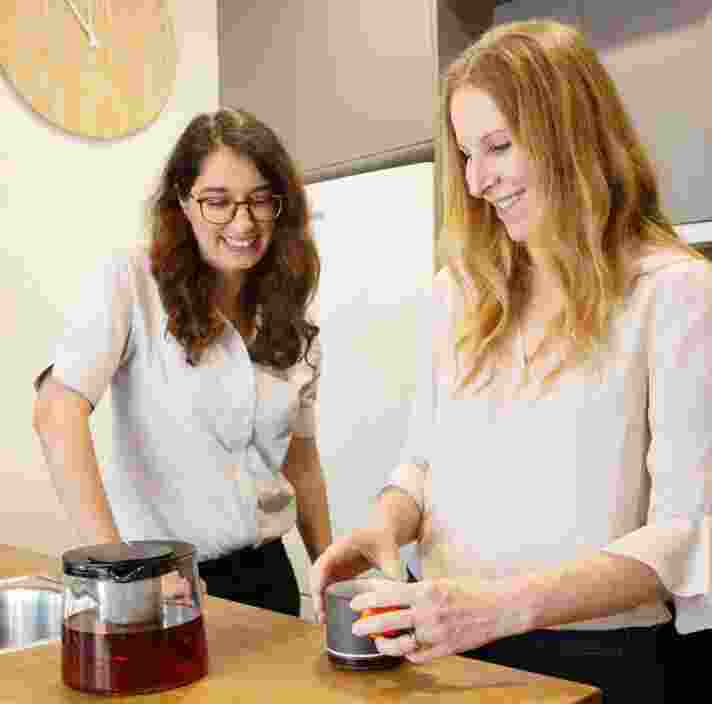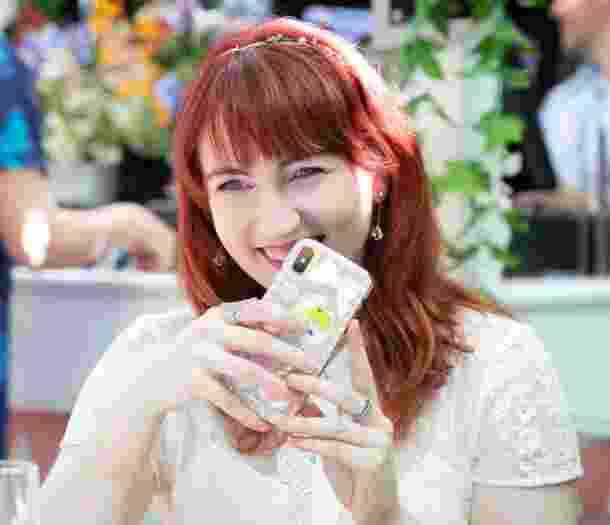Technology to enhance your independence
Tools to support your goals.
Technology can make life easier for everyone. but this is especially true for people living with low vision or blindness. There are many tools and devices to help you access information, find your way around, connect with friends, or enjoy your favourite activities.
Some of these tools and technologies may be new to you, while others can connect to or enhance devices you already own, like your smartphone or tablet. Assistive technologies can be used at home, work, school, or while you’re travelling in the community. As with any technology, it’s all about finding the right device to ensure you’re comfortable and supporting your goals to make things easier.

Devices to support mobility goals
Common technologies.
There is a wide range of tools and technologies that you can access to support your mobility goals. Some of the most common and effective ones include:
- Identification canes: You can use these to let other people in the community know that you have low vision or blindness. This is particularly useful in big crowds, on public transport, or in a busy city setting.
- Support canes: You can use these in the same way as an identification cane, but with the benefit of additional support to maintain your balance while walking.
- MiniGuides: This hand-held device will detect objects in your path, like poles, trees, or benches. MiniGuides are best used together with a long cane or a Guide Dog.
- iPhone GPS, Android and other smartphone apps: If you have a smartphone, there are many useful features and applications you can access on your phone. We can help you select one that supports you best and provide training to ensure you get the most out of it.
- Victor Reader Trek: This hand-held device speaks the name of streets, intersections, and other important features in your environment. It’s perfect for driving or walking, and – with the touch of a button – it can also tell you about shops or services in your nearby area.
- Guide Dogs: Guide Dogs are the optimal aid for fast and fluid movement. They can help you travel through complex environments with confidence. Plus, they’re a dedicated companion with a unique personality matched to you and your lifestyle. Learn more about Guide Dog Mobility.
Devices to support daily living
Other aids for your home and in the community.
We can also provide recommendations on a range of adaptive aids to support your independence at home and in the community.
Recommended equipment may include:
- Talking clocks and watches
- Liquid level indicators for pouring drinks
- Magnifiers for reading, work or study
- Kitchen aids for safe cutting, cooking and measuring.

Get started with Assistive Technology
Get in touch.
For more information on the kinds of tools and technology available to help you achieve your goals, please contact our Client Services team:
- Phone: 1800 757 738
- Email: support@guidedogs.org.au
Alternatively, you can register your interest below and our team will contact you with more information:
Request a service
Start the journey towards greater independence.
Referrals are welcomed from individuals, family members and health professionals.
Access other support
Enhance your wellbeing.
We offer a full range of specialist support to enhance your independence and wellbeing. In addition to Assistive Technology, you may benefit from:
- Adult Mobility: Develop skills to get around your home and community safely and with confidence, at every stage of life.
- Guide Dog Mobility: Partner with a Guide Dog and participate in Guide Dog Mobility training to become more confident moving through life.
- Children’s Services: Whatever milestones your child or teen wants to achieve so they can feel happy and confident, our vision specialists can offer training, encouragement and support.
- Low Vision Services: Receive specialist assessments, support and advice to ensure your lifestyle and environment are optimised to suit your level of vision.
- Occupational Therapy: Work with Occupational Therapists to identify personal goals and learn practical skills to achieve them. These can include cooking, caring for your family, living independently at home, and managing your own financial transactions.
- Neurological Vision Service: If you’ve experienced a change in vision through accident or injury to the brain, explore new skills for new life circumstances with our Neurological Vision Service. Maximise your remaining vision, learn to move through different environments and communicate with people in the community.
- Leisure & Lifestyle Services: Connect with others, make new friends, access peer support groups and socialise with the community through our Leisure & Lifestyle Services.
Ready to continue?
Seems like you have filled this form earlier. Let’s pick up where you left off.
